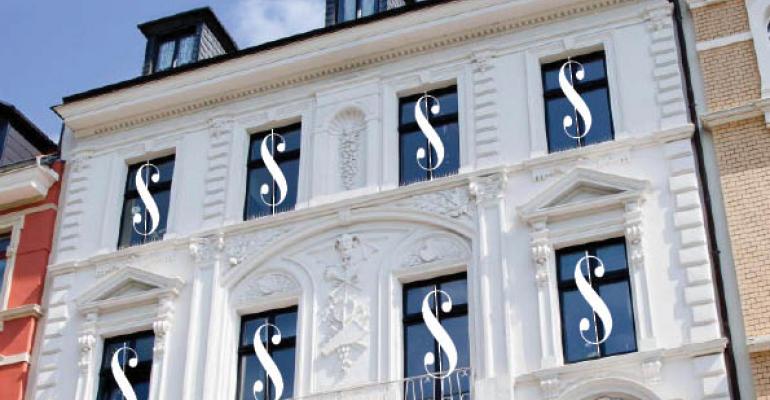Home sharing service Airbnb wants to cut a deal with owners and managers of apartment buildings. “We’ve been having a conversation with the multifamily community over the last couple of years,” says Chris Nolte, a spokesman for the website.
The company’s new “Friendly Buildings Program” offers information to people who own and manage apartment buildings. The program reveals to apartment managers what home sharing is going on in their own buildings and effectively allows them to set some limits—provided they agree to allow home sharing to continue within those limits. The program could cut down the need for landlords to police their own buildings, finding and penalizing short-term rentals. Airbnb also agrees to share some of the income from home sharing with the apartment building managers. However, joining the program could also expose apartment managers to new worries. “Our members see real and substantial enterprise risk and liability,” says Rick Haughey, vice president, industry technology initiatives, for the National Multifamily Housing Council (NMHC).
The new deal
Apartment owners and managers who join Airbnb’s program will allow renters to share their homes through Airbnb. In exchange, Airbnb will share information with the landlords, including which residents are home sharing through Airbnb going forward and who the guests are.
Landlords have wanted access to this information for a long time. Airbnb agrees to share it “if and only if” apartment managers join Friendly Buildings, according to Nolte.
The transparency is the biggest benefit for landlords of Airbnb’s program, Nolte notes. Managers also see value in a $1 million liability insurance policy that Airbnb offers with the program, says Haughey. In addition, apartment managers can create safety and neighborly conduct rules that participating residents must follow in order to be allowed to home share. Airbnb’s platform requires each host and guest to accept those rules.
“Apartment managers are concerned about the visibility into what is going on at their communities,” says Nolte. “It’s not about the money.”
The exact fee for home sharing that manager get when they join Friendly Buildings varies. However, 15 percent is a common benchmark, experts say.
A few interested parties
At least a few leaders at top apartment management firms are willing to consider Airbnb’s offer.
One third of the apartment experts—33 percent—are open to a partnership program similar to Airbnb’s Friendly Buildings Program, according an NMHC survey, including responses from 79 leaders at firms that encompass a third of the NMHC 50 largest apartment owners and managers.
These companies have more than one million apartment homes under management. Those open-minded experts include 24 percent that would now consider participating, plus another 9 percent that would consider participating if their local regulations allowed home sharing.
Even if only a few of these managers actually join Friendly Buildings, it would be significant progress for Airbnb. “We are dealing with the largest apartment managers in the country. Any agreement would involve a significant number of apartment units,” says Haughey.
So far, only 1 percent of apartment owners and managers say that they now allow home sharing, according to NMHC’s survey. A little less than half of respondents—42 percent—say they would not consider partnering to allow home sharing.
“The risk currently outweighs the reward,” Haughey says of these owners and managers. “Currently, there is a little too much uncertainty. Local regulations are now so varied and are changing so rapidly that our members, especially those with national portfolios, often can’t keep up with whether short-term rentals in apartments violate local regulations, in addition to being a lease violation.”
However, NMHCs members want to stay open to discussions on home sharing and how the apartment industry can adapt. “They’ve seen enough to know this is not going to necessarily go away,” says Haughey.

